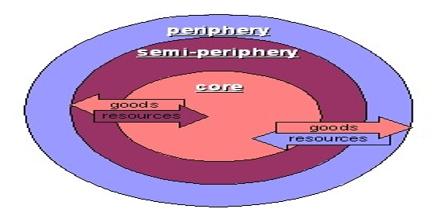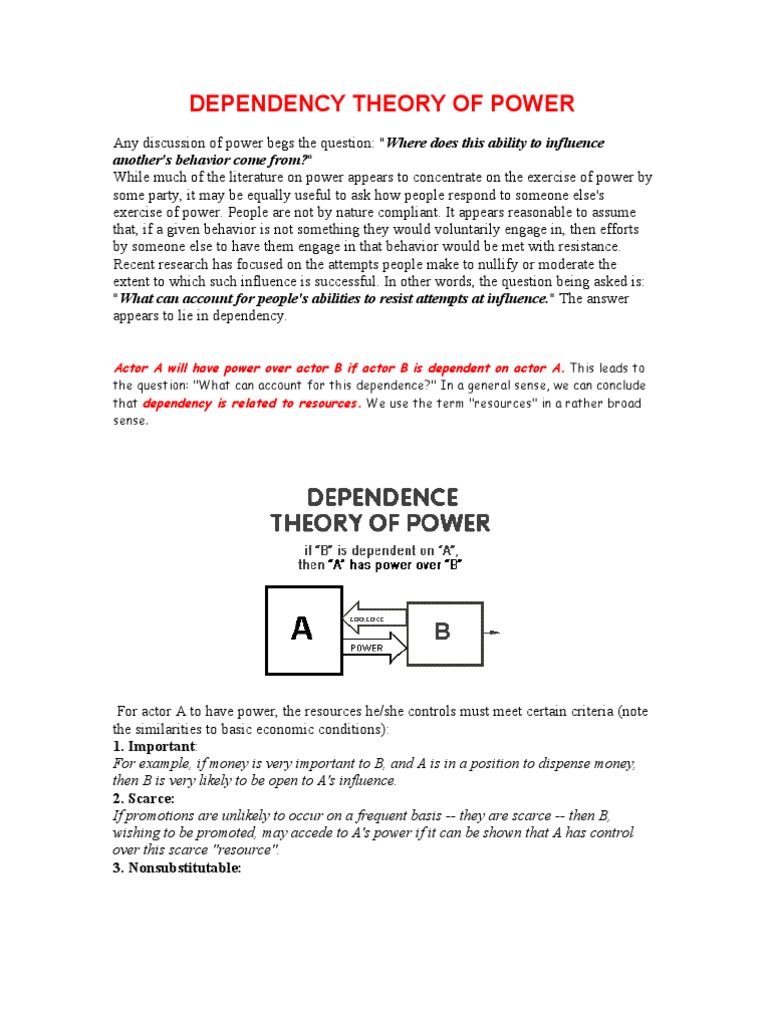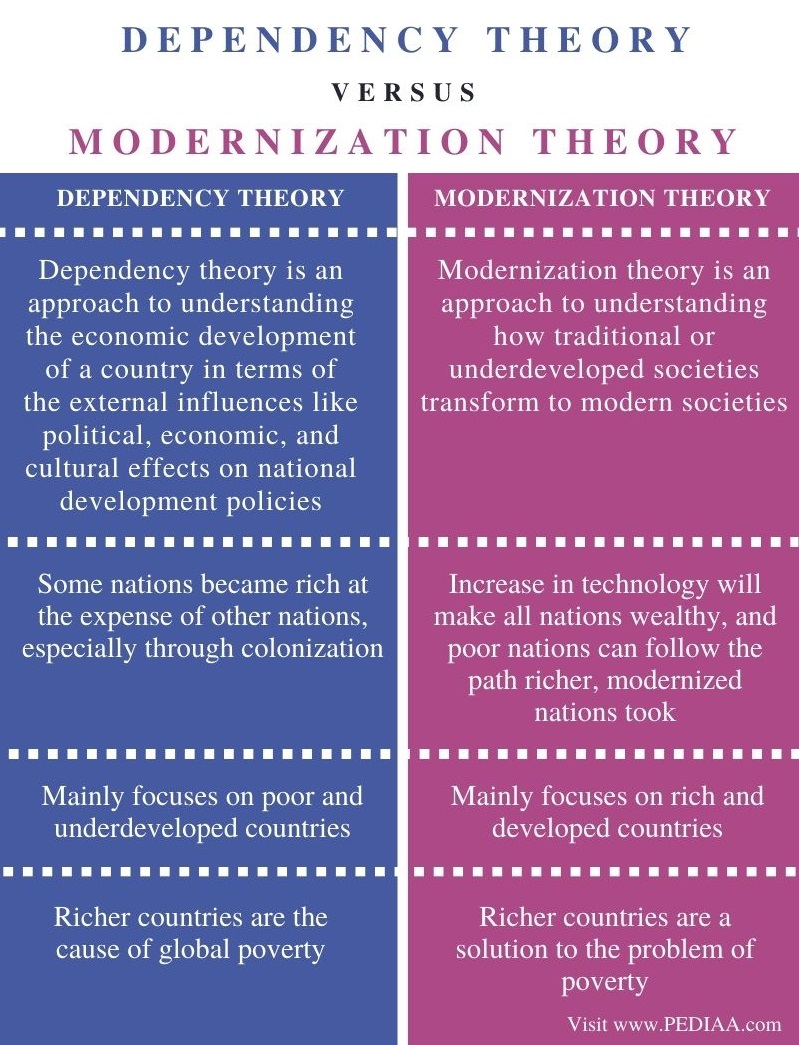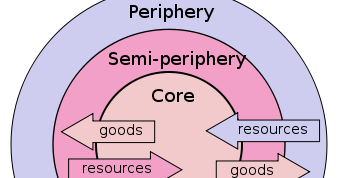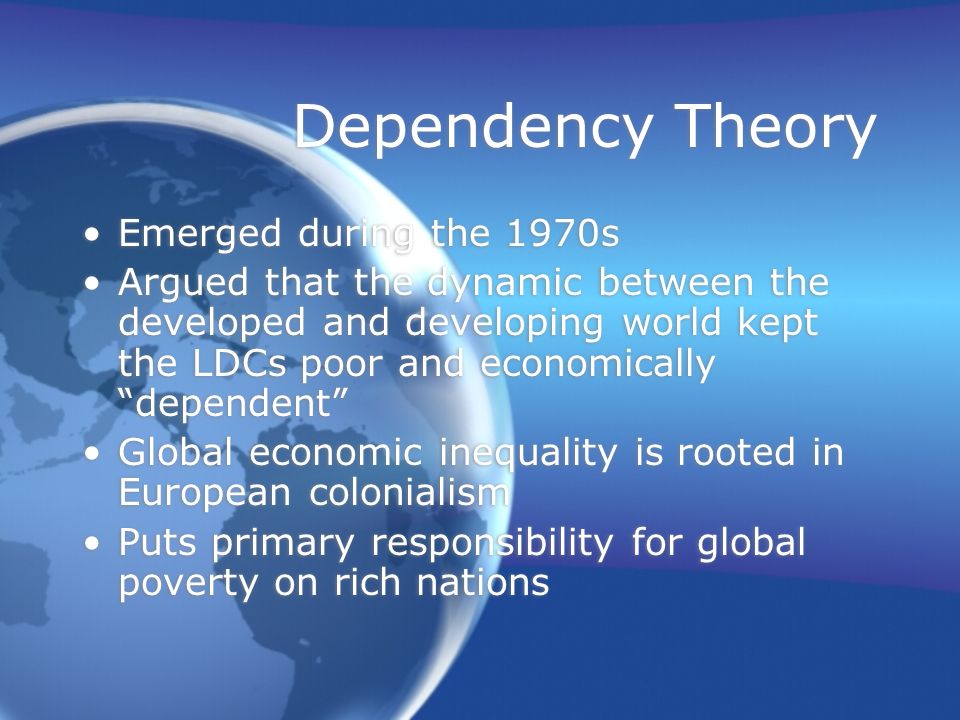Dependency theory is a economic theory that suggests that poorer countries remain poor because they are dependent on wealthier countries for their economic development. This theory suggests that the global economy is structured in a way that keeps poorer countries trapped in a cycle of poverty, unable to achieve the same levels of economic growth and development as wealthier countries.
One example of dependency theory can be seen in the relationship between developed countries and developing countries. Developed countries, such as the United States and European countries, have strong, diversified economies and advanced technologies. Developing countries, on the other hand, often rely on exports of raw materials and agricultural products to developed countries as their primary source of income.
This reliance on exports to developed countries can create a dependency relationship, as developing countries become dependent on the demand for their exports from developed countries. If demand for their exports drops, the developing country's economy can suffer as a result. In addition, the prices of raw materials and agricultural products are often subject to fluctuations, which can make it difficult for developing countries to plan for the long-term and invest in their own economic development.
Furthermore, developed countries often have a great deal of control over the terms of trade, which can further perpetuate the dependency relationship. For example, developed countries may set the prices for the raw materials and agricultural products that they purchase from developing countries, leaving the developing countries little bargaining power. This can result in low prices for the exports of developing countries, making it difficult for them to generate sufficient income to invest in their own economic development.
Another example of dependency theory can be seen in the relationship between multinational corporations and developing countries. Multinational corporations, which are based in developed countries, often set up operations in developing countries in order to take advantage of lower labor and production costs. While this can provide some economic benefits to the developing countries, such as job creation and increased foreign investment, it can also create a dependency relationship.
Multinational corporations often have a great deal of bargaining power in developing countries due to their access to advanced technologies and resources. This can lead to a situation in which the multinational corporations dictate the terms of their operations, including the wages and working conditions of their employees. In some cases, this can result in exploitation and low wages for workers in developing countries, further perpetuating the cycle of poverty.
Overall, dependency theory suggests that the global economy is structured in a way that keeps poorer countries trapped in a cycle of poverty and dependency on wealthier countries. While there are some benefits to the relationships between developed and developing countries, the dependency relationship can also perpetuate inequality and hinder the economic development of poorer countries.
